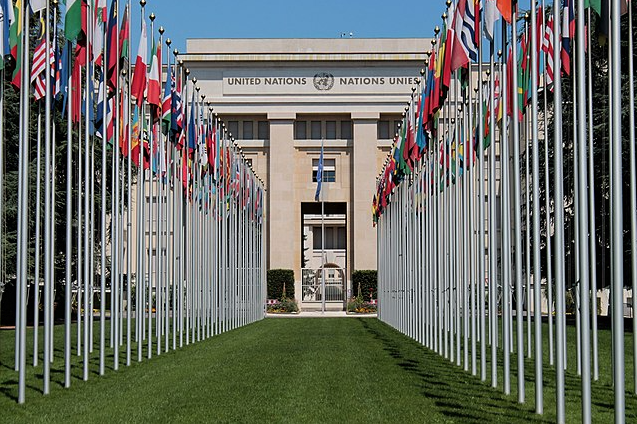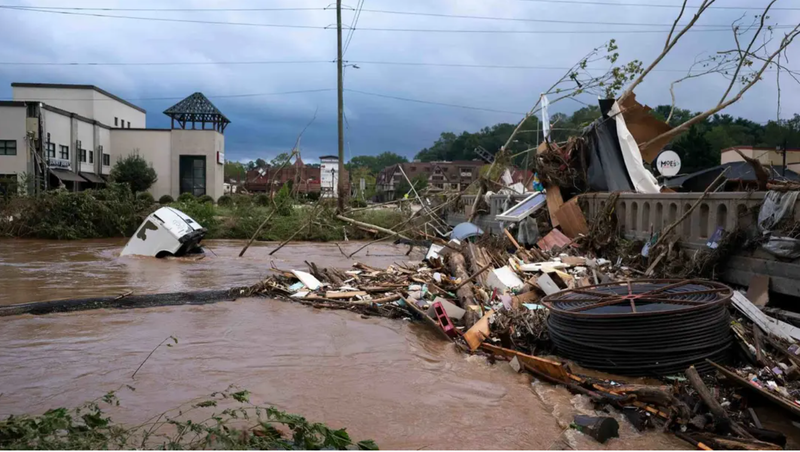UN: Cross-Border Syrian Aid Blocked by Russia
On Tuesday, two separate proposals of a six- and nine-month renewal of a UN humanitarian operation in Turkey to transport aid to over 4M people in rebel-controlled northwest Syria failed to gain approval at the UN Security Council.

Facts
- On Tuesday, two separate proposals of a six- and nine-month renewal of a UN humanitarian operation in Turkey to transport aid to over 4M people in rebel-controlled northwest Syria failed to gain approval at the UN Security Council.1
- The proposal for a nine-month extension of the operation was vetoed by Russia alone in the 15-state Security Council — with China abstaining from the vote. Only China joined Russia in approving the six-month counter-proposal, meaning there was to be no renewal of the program — which officially expired on Monday — that provides for over 80% of the needs of those living in rebel-controlled areas of Syria.2
- The aid mechanism was first established in 2014, delivering supplies via a border crossing at Bab al-Hawa. Both resolutions required at least nine votes in favor, dependent on any of the five permanent members of the Security Council [Russia, China, the US, the UK, or France] choosing not to exercise their right to veto the motion.3
- Authorization of the cross-border mechanism is required as Damascus does not agree with the UN operation on sovereignty grounds, arguing that sending aid into rebel-held areas undermines the state's territorial integrity.4
- Russia's UN delegation stated that the nine-month extension, proposed as a compromise after an initial 12-month resolution was drafted, was not in the interests of the Syrian people and was intended to provoke Russia into using its veto. Russia also stated that the resolution violated Syria's sovereignty while arguing that the border mechanism benefitted terrorists in the region. In a joint statement, the US, UK, and France condemned Russia's decision.5
- Russia last vetoed a one-year extension in July 2022. Despite failing to renew the operation in Bab al-Hawa, two additional crossings remain open — agreed to by Syrian President Bashar al-Assad following an earthquake in February that killed tens of thousands of Syrians. Without a further renewal, both aid routes will expire in mid-August.6
Sources: 1Reuters, 2Al Jazeera, 3Guardian, 4Middle East Monitor, 5UN Press, and 6France 24.
Narratives
- Anti-Russia narrative, as provided by The New Humanitarian. Despite providing a crucial lifeline to over 4M people, cross-border aid has consistently faced attempts from Russia to undermine the UN's mechanism. Moscow and the al-Assad regime continue to play with the lives of Syrians in an attempt to gain leverage. Both the Russian and the Syrian governments must stop politicizing international efforts to give aid to the region and cease manipulating a humanitarian crisis for their own benefit.
- Pro-Russia narrative, as provided by BNN Breaking. Russia's criticism of the UN's controversial cross-border aid mechanism highlights the complexity of the Syrian crisis and merely calls for greater transparency and fairness in a program that benefits the West's political goals while ignoring the needs of over 14M Syrians who live in government-controlled territory. Russia's demands merely insist that UN efforts respect Syria's sovereignty, comply with international norms, and attempt to provide aid to all Syrians.
- Cynical narrative, as provided by Al Jazeera. Though the US and other Western countries blame Russia for the lack of aid delivery to northwest Syria, the reality is that Russia's approval is not actually needed to deliver aid independently. Russia and the Syrian regime are the main causes of Syrians' suffering, but that doesn't mean that the West is without blame as well. Turkey controls the border between it and the rebel-held areas of northwest Syria, meaning that humanitarian aid could be transferred to the millions in need without Russia's approval.






